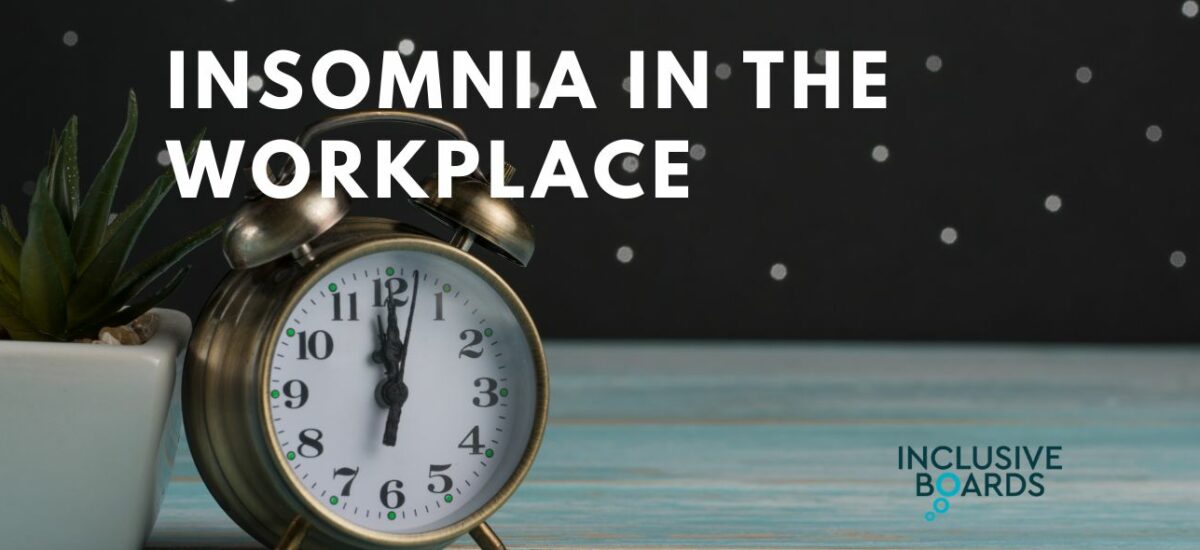Insomnia causes an annual loss of £30 billion in the UK, and with one in every three people affected it is thought around 200,000 working days are lost each year due to insufficient sleep*.
It is a sleep disorder which can either present itself as a short-term condition lasting less than three months or more as a long-term one (three months or longer). Some of the ways it can impact people include struggling to fall asleep, waking up several times during the night and finding it difficult to nap during the day even when tired.
The NHS recommends between seven and nine hours of sleep per night. However, a myriad of factors such as work-related stress, financial concerns, room temperature, antisocial hours, personal loss, family worries, and some neurodiverse conditions can regularly disturb sleeping patterns. It is also often comorbid with numerous other medical reasons such as depression, Parkinson’s Disease and Menopause. Insomnia can induce feelings of frustration and anxiety, further affecting sleep and creating a vicious cycle that can be difficult to break.
Insomnia can have a considerably negative impact on daily life; making people feel tired and irritable, hindering concentration and cognitive ability. Other effects on the working day include greater risk-taking behaviour, a decrease in motivation and also frequent sickness absence. According to The Sleep Foundation, lack of sleep has been linked to certain medical conditions such as Type 2 Diabetes, high blood pressure and heart disease. Famous physicist Albert Einstein believed sleep to be incredibly beneficial for the brain and reportedly slept for at least ten hours per day.
Some ways to sustain favourable sleep hygiene include having a regular sleep schedule, avoiding screens, alcohol and caffeine before bed, keeping active during the day, maintaining a healthy diet and undertaking relaxation techniques. However, insomnia can still be an issue despite these habits.
In the Equality Act (2010), Disability is defined as being ‘a physical or mental impairment that has a ‘substantial’ and ‘long-term’ negative effect on your ability to do normal daily activities’. Insomnia would therefore only be considered a disability under the Equality Act if it persisted for 12 months or longer and had an adverse impact on day to day life.
As an employee, if you work in a safety-critical environment, informing your manager (and other team members) is of vital importance in order to minimise risk to yourself or your colleagues. Alternatively, if working in a desk job, be sure to drink plenty of water, eat healthily, take regular breaks and get fresh air.
As an employer, cultivating an open and non-judgmental workplace environment may make it easier for employees to open up about any problems they’re facing. Individuals suffering from insomnia may need deadline extensions and may also benefit from longer lead-in times to mitigate the risk of failing to complete tasks within the allotted period. Managers can also offer flexible hours and provide a reduced workload for short/long term relief. Organisations should pledge their support to the Charter for Sleep Equality; a commitment established by The Sleep Charity. Additionally, a Sleep and Recovery toolkit designed for employers has been published by Business in the Community and is available to view here.
The importance of sleep has been understood for centuries, as evidenced by a quote from Shakespeare’s Macbeth which should still be acknowledged in today’s much faster and heavily saturated society, “sleep is not only a necessity of life, but something that makes life worth living”.
*Statistics taken from Sleep in Numbers with contributions from RAND Europe, NHS Live Well and NHS Choices




